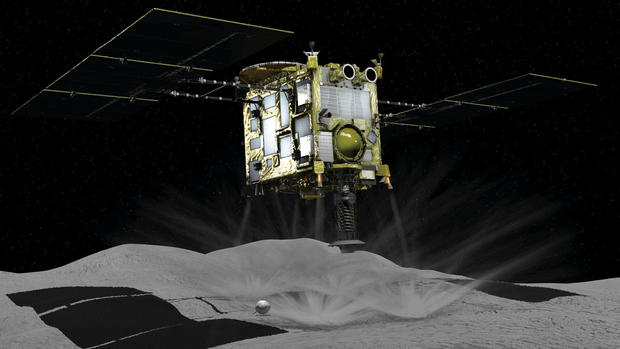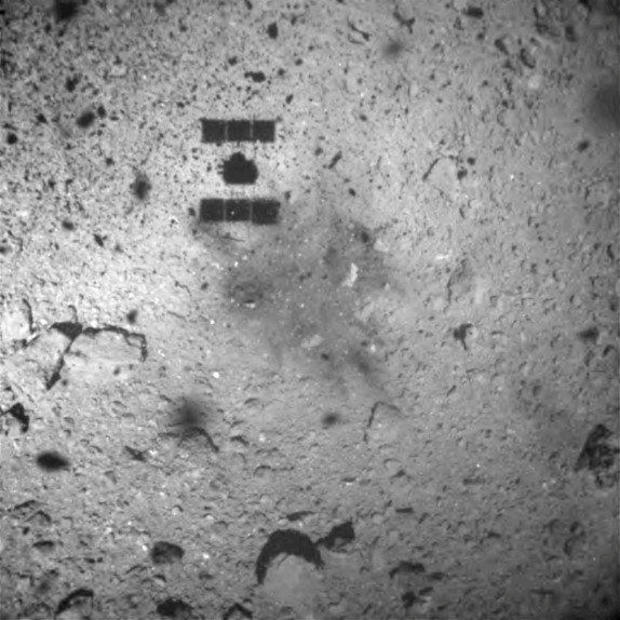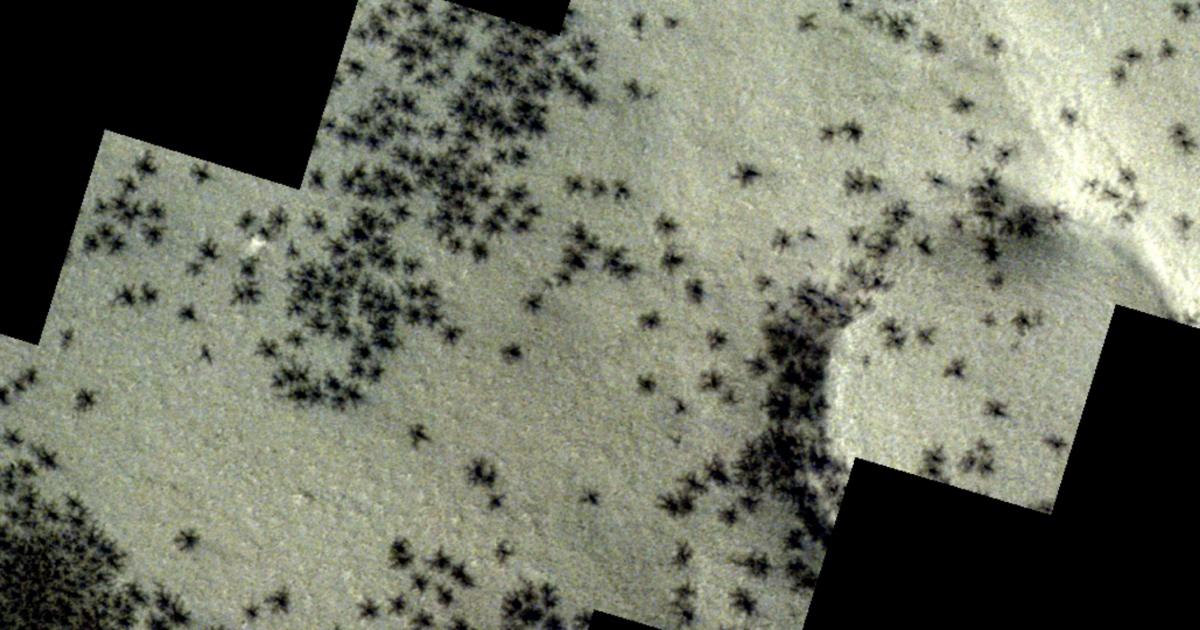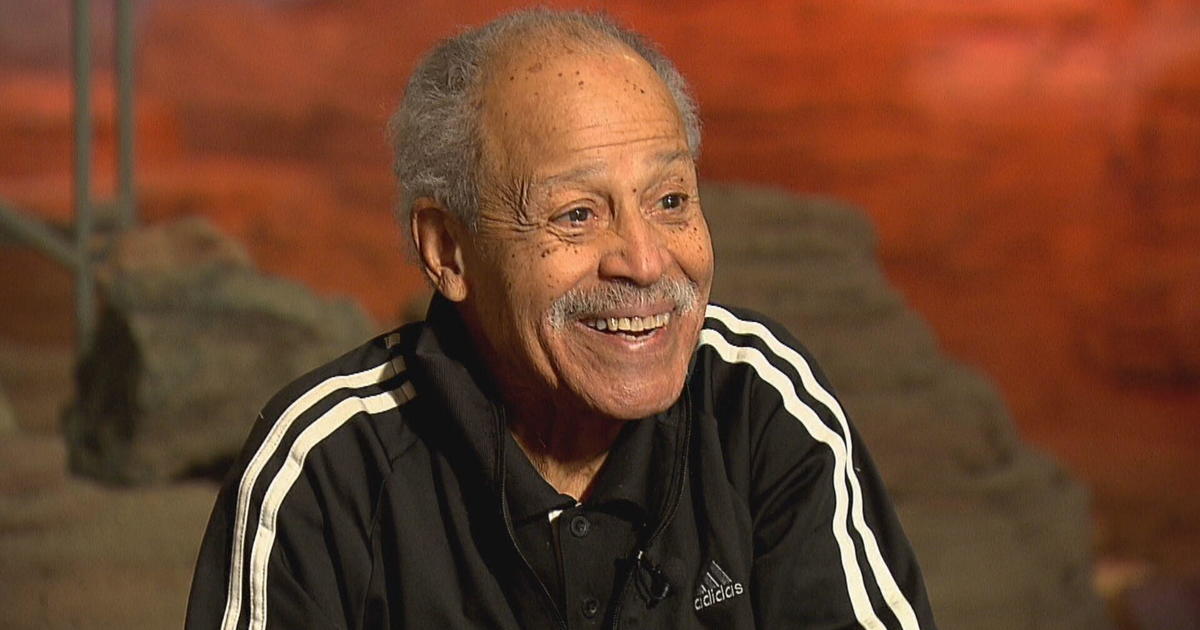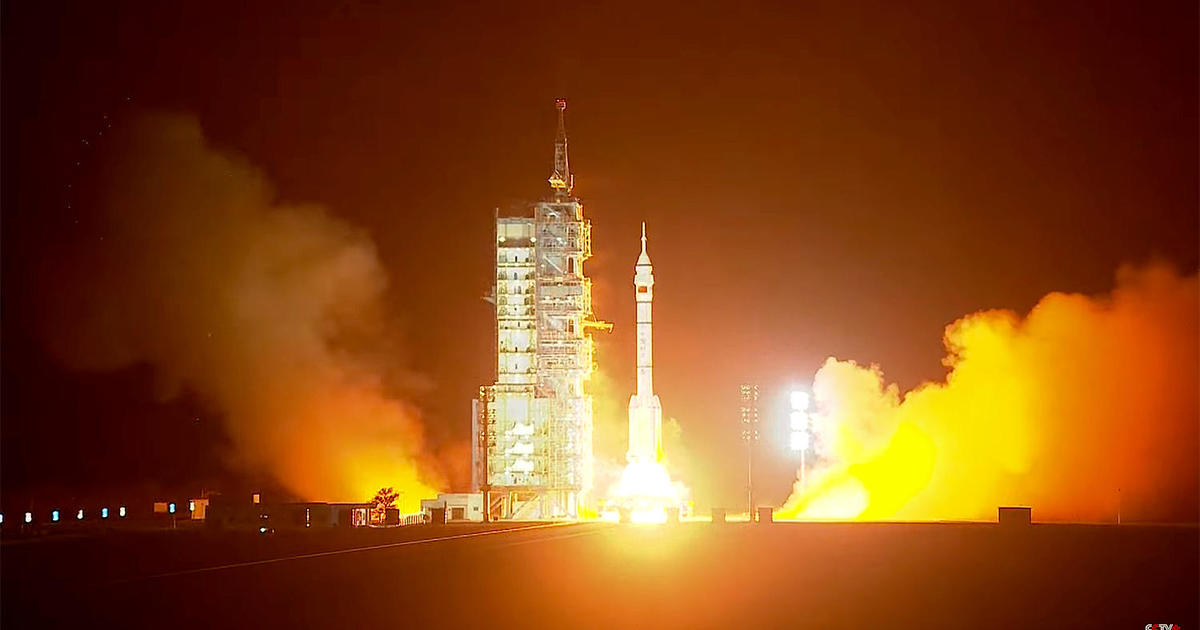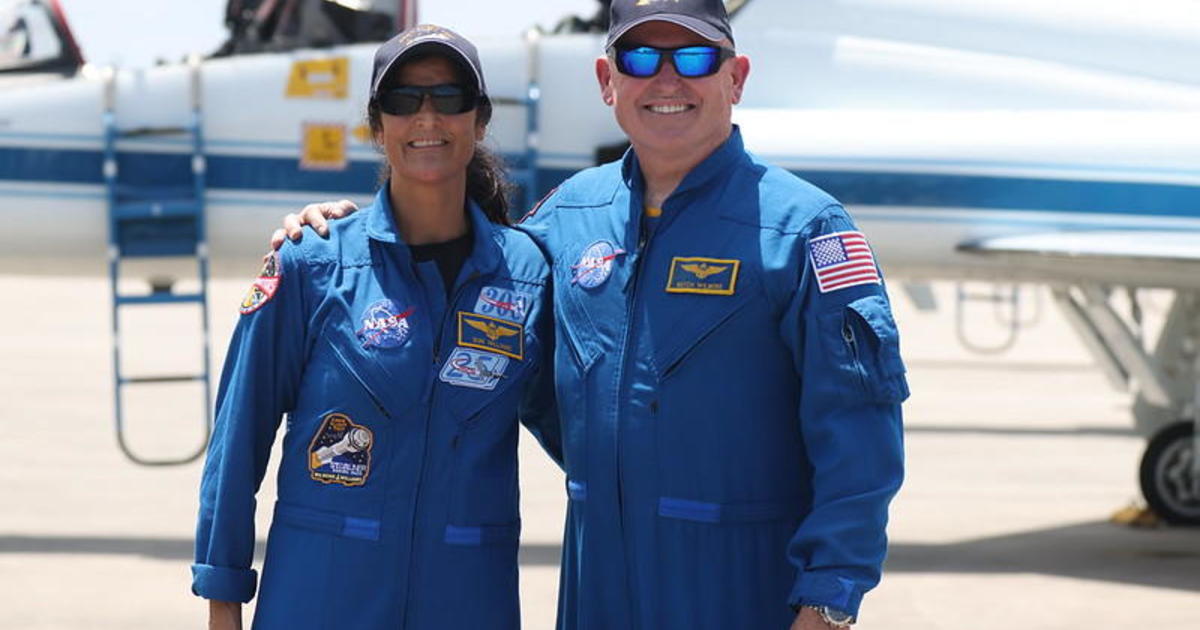Japanese space probe lands on far-off asteroid to get samples
Tokyo -- A Japanese spacecraft touched down on a distant asteroid Friday on a mission to collect material that could provide clues to the origin of the solar system and life on Earth.
Workers at the Japan Aerospace Exploration Agency control center applauded Friday as a signal sent from space indicated the Hayabusa2 spacecraft had touched down.
During the touchdown, Hayabusa2 is programmed to extend a pipe and shoot a pinball-like object into the asteroid to blow up material from beneath the surface. If that succeeds, the craft would then collect samples to eventually be sent back to Earth. Three such touchdowns are planned.
Japanese Education Minister Masahiko Shibayama said the space agency had concluded from its data after the first touchdown that the steps to collect samples were performed successfully.
JAXA, as the Japanese space agency is known, has likened the touchdown attempts to trying to land on a baseball mound from the spacecraft's operating location 12 miles above the asteroid.
The asteroid, named Ryugu after an undersea palace in a Japanese folktale, is about 3,000 feet in diameter and 170 million miles from Earth.
The space probe now on the asteroid's surface, Hayabusa 2, is named after a falcon, the Reuters news agency points out.
The landing was postponed from October because it was hard to choose a landing spot on the asteroid's rocky surface, Reuters notes.
Asteroids are "believed to have formed at the dawn of the solar system and scientists say Ryugu may contain organic matter that may have contributed to life on Earth," Reuters explains.
